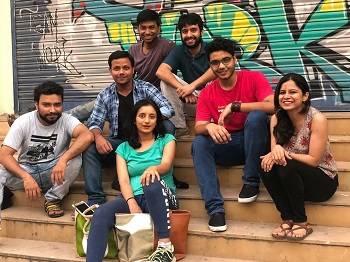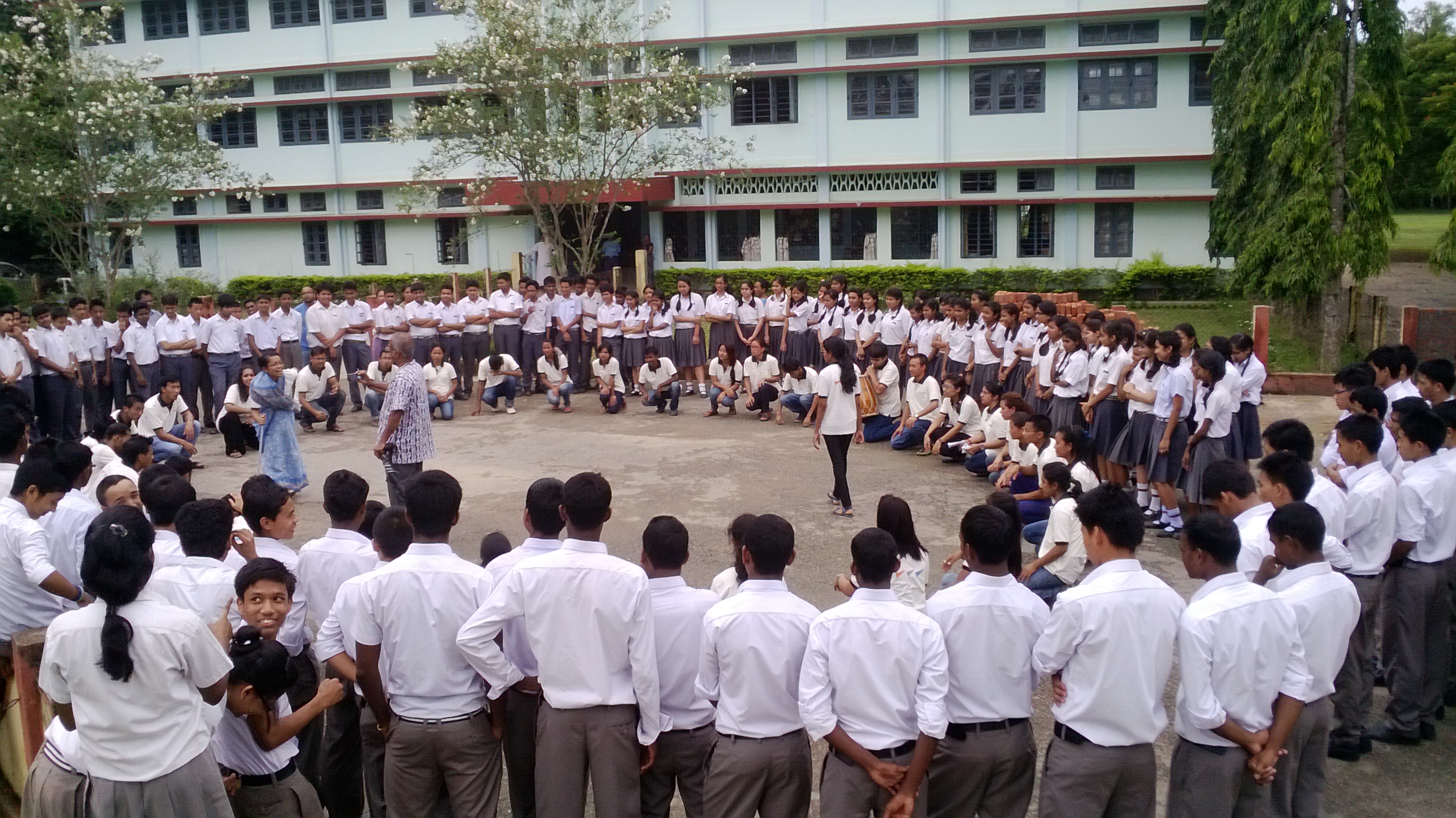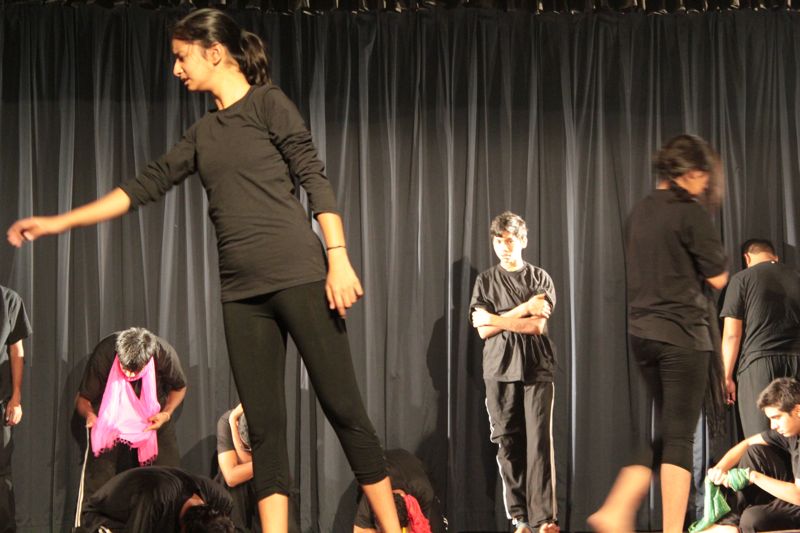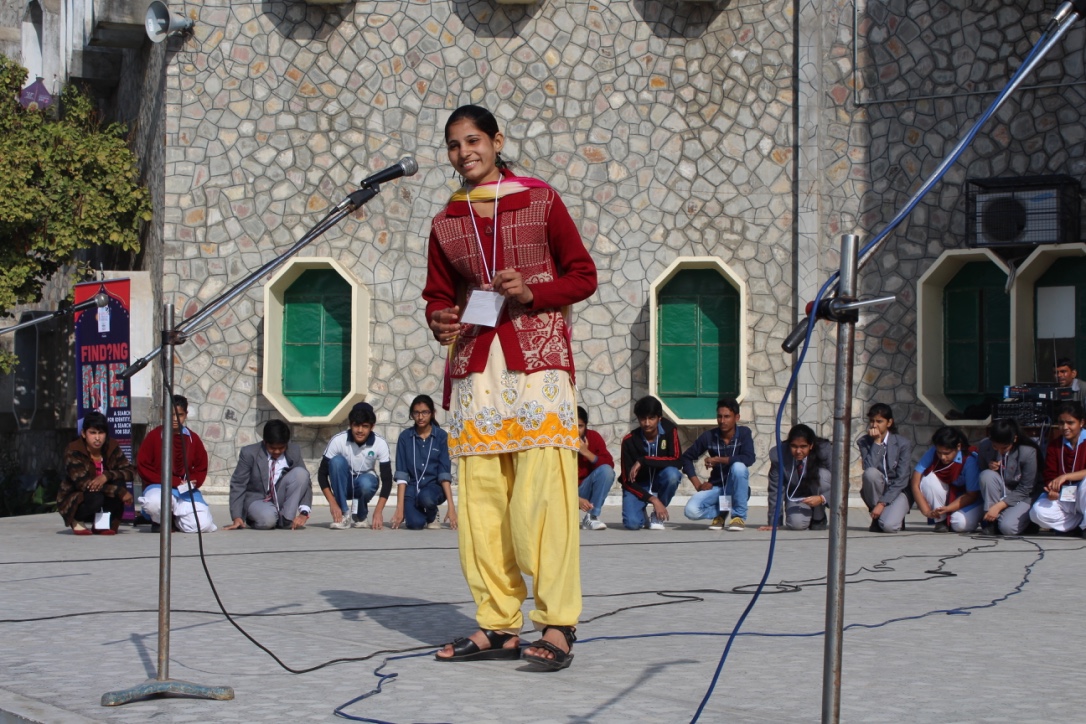Category: What we do
-
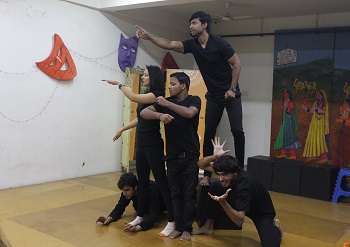
Playback Theatre and Corporate Space
November 13, 2017Our first exposure to public performances of Playback was in a corporate office in Delhi. Since our group was just in its nascent stages, we started working with the audience on issues around family and memories of home, in order to find emotional connections between employees beyond the workspace.
Since then, we’ve gone on to explore deeper, more significant issues in the workspaces. Our first bite at this was to use Playback to address ‘Sexual Harassment at Workspace’ as part of an awareness program at a Corporate Office. The response was invigorating. Through this broad topic, we went moved into realizing genuine concerns around office hierarchy and finding ‘safe spaces’ for working employees. Most members in senior positions told us that this was an eye-opener for them, looking at the newer workforce through a more personal lens.
More recently in June this year, we tied up with the ‘Ek-Prana’ Foundation to work on ‘Stress Management and Well Being’. Our session was an inauguration into a day where ‘Ek-Prana’ Foundation spoke about maintaining one’s physical and mental health in today’s tough work environment. The Playback session opened up participants into talking about the conflicts between office and personal responsibilities through the kind of pressures that exist today.
If you are a corporate, wanting to work on aspects of work like ‘teambuilding’, ‘work-life balance’, ‘Sexual Harassment at Workspace’ and more, do get in touch with us at office@yuvaektafoundation.org
-
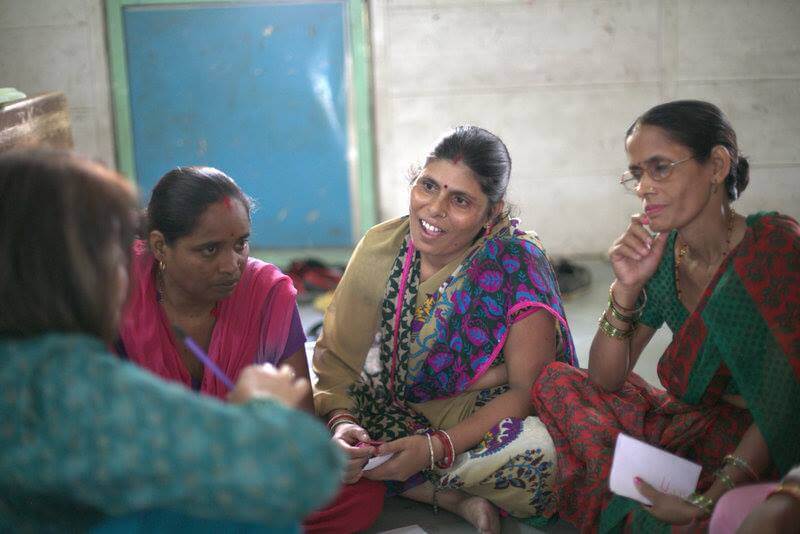
Community Outreach Workshops @ Jahangirpuri
November 7, 2017“I have realised that crime in the area will be reduced only when we work together. I would like to get associated with you and start working towards this. I would like to continue these workshops in the future ‘didi’ (meaning older sister, referring to Ms. Puneeta Roy in this case). Please keep coming”
– Rinki, a resident of Jahangirpuri was part of our Community Theatre workshops. Her children study in the local government school. “We can’t keep our houses unmanned or kids alone in the area because of constant threat to their lives”. Jahangirpuri is filled with such stories that need to be heard. Rinki particularly enjoyed pen-making as part of our up-cycling workshops. One afternoon during the mirror exercise, she broke down as she received love and affection from her fellow participant that she hadn’t received in her own home.
Our entry into Jahangir Puri comes at the back of our work in the Aadharshila Observation Home for Boys, G.T.B Nagar for the best part of the last decade. Our interactions with the children, magistrates and key members of the Home made us aware about this area’s notorious reputation as a hotbed of crime and inhuman living conditions. Our consequent interventions have focused on understanding the socio-economic construct of ‘Youth At-Risk’ in urban slums in Delhi.
In July 2015, we conducted a one week long intensive Expressive Arts workshop with women and children in the area. With the help of school authorities, we approached students of two Government Schools in D Block and K Block, Jahangirpuri. Interacting with their parents later led us to form a core group of participants for the workshops which were held after school hours. We started with basic warm up workshops and moved onto arts-based skill development to strengthen the vision behind our intervention.
Our first workshop in July was centred on 2 paradigms:
- Bridging the Inter-Community Gap: Participants were invited from different blocks in Jahangir Puri. Each block houses a specific community who rarely interact with one another. Most participants had seen each other for the first time.
- Creating an environment of Entrepreneurship by providing an Opportunity Structure: The workshop was designed to expose participants to an array of skills and practices that can inspire them to start household industries and activities. Participants had been exposed to such programs for the first time.
Our subsequent research has helped us expand the scope of this intervention. Our work started with a core group of 25 women, and has now expanded to a network that spans over 150 families in the area.
“There is a general sense of apathy towards these issues. We feel unsafe. But the area has changed now. More and more houses have come up. There is hardly any space” says Rinki. Many like her who attended the workshop feel the same, as they now look to form connections within their community to continue this work.
-
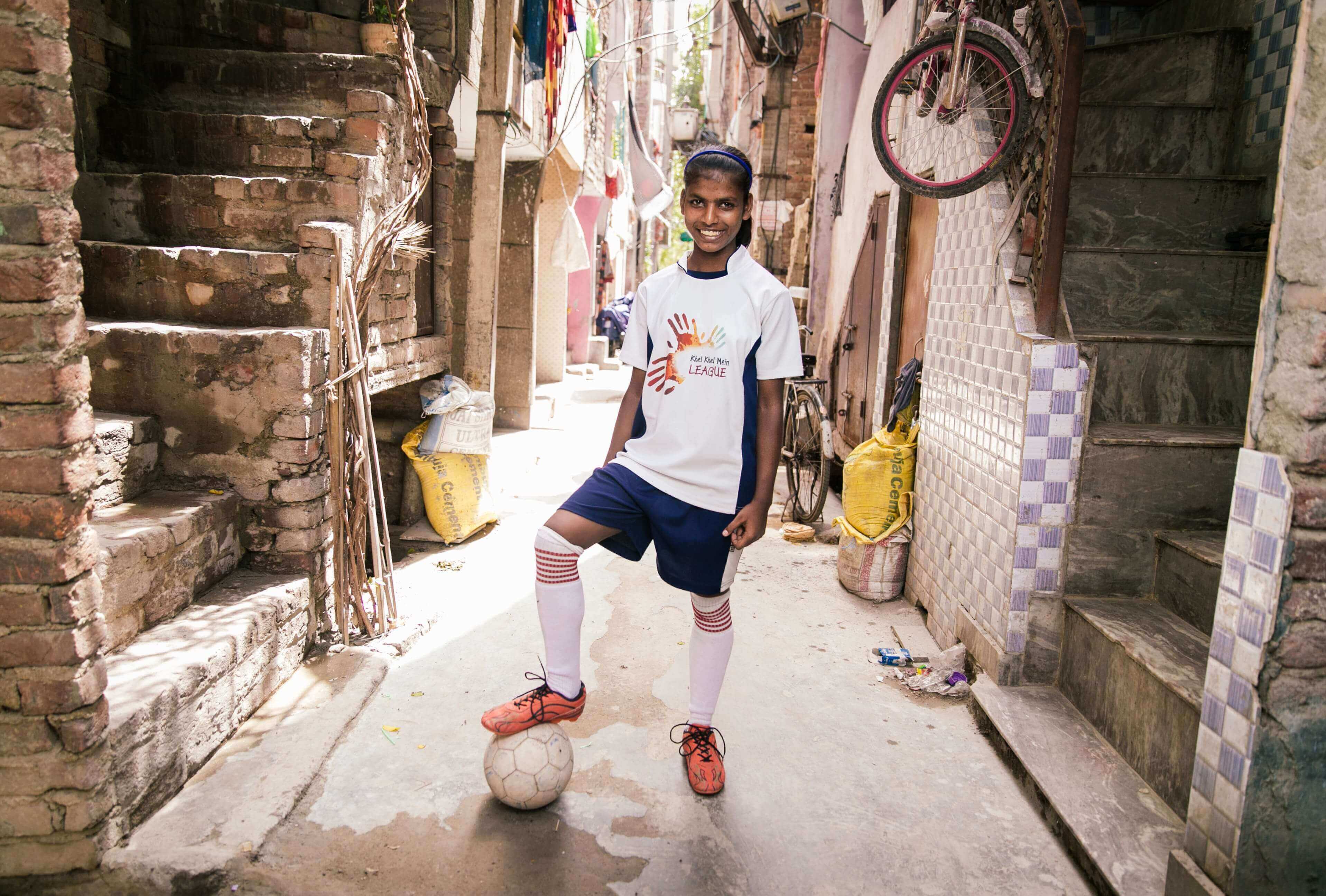
School Theatre Workshops @ Jahangirpuri
“I want to play football. Every morning before the school starts, all of us go to the park and play football with bhaiya and didi. Through this play, I was able to tell everyone what I want to be- a Football player!”
-Shaina, 13, is a resident of Jahangirpuri and is the eldest daughter in the family of four. Shaina has a father to look after her and three of her siblings. Recently, they came in contact with another NGO that works with Sports towards empowerment. Shaina likes playing football and as a participant in our workshops, she got the opportunity to tell her neighbours and community members that she wants to be a Football player.
Our second intervention in Jahangirpuri took place during the summer vacations in 2016. We conducted a 2-week long Expressive Arts’ workshop with students of K-Block School, aged 13-18. A small portable cabin within the school compounds was used for these workshops.
2 batches were created of girls and boys separately, with each of them coming in shifts. The workshops ran in the same time frame as their class schedules so it was easy for parents to send their children at the requisite time.
The focus of these workshops was a little different. Participants were asked to bring up instances and stories from their communities, which were then moulded into a short interactive performance. Through the course of the workshops, we introduced children to different techniques of theatre. Students really seemed to enjoy the warm up games and exercises, making the workshops light and easy for the participants. Constant power shortages coupled with the perpetual heat of June couldn’t deter the enthusiasm of these children. We normally see a decline in workshop participation as days progress, but this experience was a terrific exception. Half-way through our sessions, more students approached us, only to be denied participation because of paucity of space.
The facilitators also worked with Playback Theatre. This was the first time we had used this technique in a community setup. Instances of everyday life narrated by the participants were enacted by the facilitators. Seeing us take on their roles, some children volunteered to perform themselves.
The resultant performances were then showcased to parents and other community members. Another Playback Theatre exercise followed as a part of the consequent discussions. It is only from these discussions that we got a sense of the actual problems in the community. Municipally and administratively ignored, Jahangirpuri presents us with acute problems of urbanisation and exclusion. The seething levels of inter-community issues, coupled with inhabitable living conditions, make Jahangirpuri a complex area to deal with.
Our work with families and children continues. We are looking for partners to help strengthen our community presence and create opportunities for social entrepreneurship and self empowerment in the area.
-
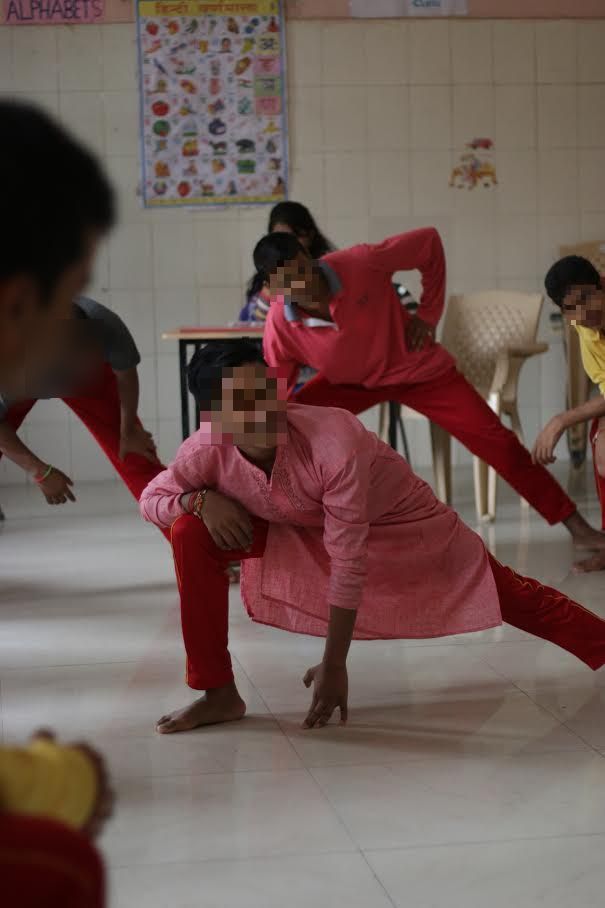
Intensive Theatre Workshops @ Aadharshila Observation Home for ‘Children in Conflict with Law’
“When I get out of here, I want to complete my education and support my family. I know I made a mistake, but I believe I can make things right. One day, when I have enough, I want to travel the world. Thank you for supporting me.”
– Kabir (name changed) was part of our Expressive Arts program in May (2017) this year. He performed in the play ‘Aadharshila Mein Ek Din – A Day in Aadharshila’. In an exercise where we asked our participants to draw an object of desire, he drew a phone with his mother’s number before he broke to tears. Today, Kabir his pursuing a Bachelors degree in Cosmetics and working in a salon to support his family.
We started working with a group of 15 inmates in the first week of May towards a workshop that culminated in a performance at the ‘Delhi Judicial Academy’ for Magistrates, members of Juvenile Justice Board and Child Welfare Committee . We explored the idea of ‘Dreams, Delinquency and Destitution’ in the context of ‘Youth at Risk’.
We started our workshops by introducing the children to basic theatre warm-ups and creative exercises before slowly moving on to ‘childhood dreams and aspirations’. Once we got to this playful core, the task ahead become easier and smoother. Participants shared their stories, circumstances, future goals, inhibitions and restrictions that have shaped their lives today. We also explored enabling oneself to overcome these barriers and look for respect where it matters the most: to the Self.
Working at the Home only strengthens our resolve in the core vision of the Foundation, that of equity and social justice. We do hope that this time spent can only pave way for more work in the future that is centered on the idea of healing and empowerment.
Many like Kabir have taken this chance and flesh out their aspirations from paper to real life. After a decade of work in the Sewa Kutir Complex, we feel the need to reach out to more children ‘Under Care and Protection’. If you’re interested in contributing to this program, please don’t hesitate to get in touch with us.
-

Home/Away International Theatre Festival
‘For as long as anyone can remember, the Banyan Tree has been the heart of the Jahan Nagari. A resettlement slum, hastily cobbled together during the ‘clean-up’ drive of New Delhi, Jahan Nagari is populated with migrants who gravitated towards those with similar language and customs, as the city’s streets became ghettos, where opportunists sought to stake a claim. A microcosm of any big city, Jahan Nagari has its power centres, its dark underbelly, as well as its pockets of culture and refinement.
Into this melting pot comes young runaway, Roshan, escaping from an alcoholic father and abusive stepmother, seeking shelter under the banyan tree. Through the eyes of a wide cast of characters, we experience the journey of the migrant, the insecurities and fears, and the longing to grow roots and call a place ‘Home’.
‘Bargad Ki Chhaon Mein – In The Shade of The Banyan’ was a performance that covered the subaltern landscape of an urban slum in Delhi. By fictionalizing Jahangirpuri (a resettlement colony in north west Delhi), the play focused on the key interplay of migration, class and a feeling of ‘loss’ that comes when one struggles to find Home.
We continued our association with the National Theatre of Scotland when they invited us to participate in the Home/Away International Theatre Festival. It was a celebration of Participatory Arts that saw 10 theatre companies from across the world share their experiences with community engagement.
For us, this platform was the perfect opportunity to display our work with the ‘Youth At-Risk’. Time spent at the Juvenile Observation Home had led us to Jahangirpuri with the intent of intervening even before the crime took place. A year spent in the community gave us our stories, which were carefully moulded into a theatre production directed by our Managing Trustee, Ms. Puneeta Roy.
Characters had a sense of realism and the audition process equally vigorous. After two rounds of intense auditions, the selected group of actors traveled with our direction team to Jahangirpuri to get a sense of what they were working on. Actors working with us on this production were professionals with a vast range of experience. In rehearsals and preparations that lasted 3 months however, we all shared a common vision.
Our debut performance as at the Aadharshila Observation Home for Boys, our source of inspiration for this work in the first place. We performed there for the Superintendent, Magistrates, members of Juvenile Justice Board and other organisations working in the sphere of Juvenile Law. But our best critics were the inmates, the young boys who watched the show and found themselves connecting to the characters in the play.
To know more about the story and the project, click on the link below.
INSERT LINK HERE
ADD BARGAD REPORT (TO BE MAILED)
-
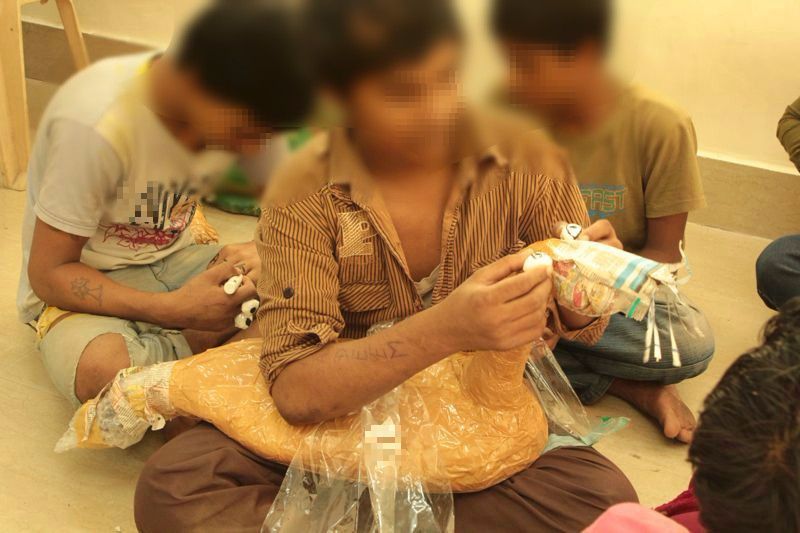
Expressive Arts Workshops with ‘Children in Conflict with Law’
THREADS OF HUMANITY was launched in 2009 at the Sewa Kutir Complex with the play titled ‘Main bhi Insaan hoon’ with the boys at Aadharshila observation home for ‘Children in Conflict with Law’. The program expanded to include the ‘Waiting Room’, where we facilitated Art activities with children waiting for their bail plea to be heard by the Magistrate.
While students from privileged schools and communities enjoy opportunities and resources at their behest, we realize that ‘Children in Conflict with Law’ fall under the category of ‘Youth At-Risk’. It encompasses that section of the young dividend that hasn’t been able to find its way in this ever growing economic disparity.
In keeping with our vision of Equity and Social Justice, this is a Community Volunteer Program which works with the intent of skill and talent sharing. We invite students from Delhi University to engage with young offenders, and be sensitized in the process. Master Practitioners from different disciplines share their expertise for the workshops.
The Foundation’s novelty in approach stems from the use of Expressive Arts to help engage young ones with self and society. In fact, this approach works best when you bring together young minds from different socio-economic backgrounds.
In this spirit of rehabilitation, we began constructive interventions at the Aadharshila Observation Home in the Sewa Kutir Complex, Kingsway Camp, through ‘Expressive Arts Workshops’ that focused on building the confidence and communication skills of the boys.
The Expressive Arts Program grew to include SPYM SAHYOG de-addiction center, a home for ‘Children in Conflict with Law’ undergoing drug rehabilitation. An intensive module with workshops each day of the week enabled participants to create their own forms of expressions through different mediums like Art, Creative Writing, Music, Drama, Waste Recycling, Puppetry and Physical Movement.
A few months later we added another important intervention to our work in the SAHYOG center– Kirloskar Brothers came on as our partner to engage with the boys in vocational training, taking them through pump repair and electrical training during their stay of 3 months.
We are constantly on the lookout for like-minded individuals who can partner with us in taking this program forward. As one of our longest running programs, ‘Threads of Humanity’ has also become a way to reach out to larger audiences through Art-based community interventions.
Get in touch with us to know more about how you can contribute.
-
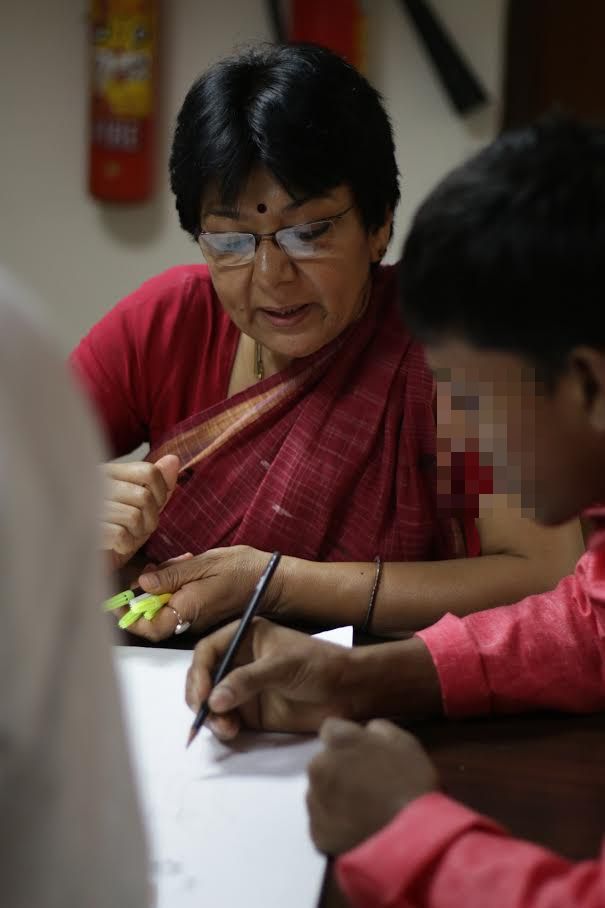
Workshops with Stakeholders at Delhi Judicial Academy
“I want to complete my education and become a big man one day” – Participant, Aadharshila Home
“I have always wanted to help people and through my work, I’ve managed to fulfill that dream” – Member, Child Welfare Committee
Be it the young, or the younger, everyone dreams. Our dreams connect us to our innocence and light, that makes us one with our being.
On August 25, 2017, the Foundation conducted it’s second Capacity Building workshop at the Delhi Judicial Academy for members of Child Welfare Committee, Juvenile Justice Board and organisations that work in the sphere of Juvenile Law. A small and engaging performance by the boys from the Aadharshila Observation Home titled ‘Khwaabon Ke Par – Wings of Dreams’, was followed by an Art activity that engaged all stakeholders on one platform and encouraged them to share their dreams with each other.A magical afternoon turned surreal because of the interactions that helped everyone understand and empathize with one another. It also promised to bring back the same innocence within all participants that helped them remember their lifelong dreams and aspirations.Our first session was on May 26, 2017 where 12 boys from the Aadharshila Observation Home for ‘Children in Conflict with Law’ had stepped out of the Home for the first ever time to perform a play. An intense 15 day Expressive Arts Workshop Module with the boys had helped us develop an interactive performance. Our focus was to use this time to expose the boys to a world of theatre and the arts. The resultant performance titled ‘Aadharshila Mein Ek Din– A Day in Aadharshila’ was created through personal stories and narratives, displaying power struggles in everyday life that the young ones face. This interactive performance was presented at the Delhi Judicial Academy for members of Juvenile Justice Board and Child Welfare Committee.
The performance was followed by a Playback Theatre session with the audience members. Committee members of the Juvenile Justice Board and Child Welfare Committee were encouraged to share their stories with us. The Yuva Ekta Playback Theatre group brought these stories to life by performing them through different narrative styles. The idea was to contrast these stories to the ones shown by the boys and help them relate to each other in a session that was titled ‘Understanding Childhood: Dreams, Delinquency and Destitution’.
The Delhi Judicial Academy is the premier institute for training new members of the judiciary and extra-judiciary bodies. As a part of their training sessions and curriculum, they organise conferences and discussions. The Yuva Ekta Foundation has been invited twice to the Academy to conduct sessions on ‘Capacity Building’ for members of Juvenile Justice Board and Child Welfare Committee.
-
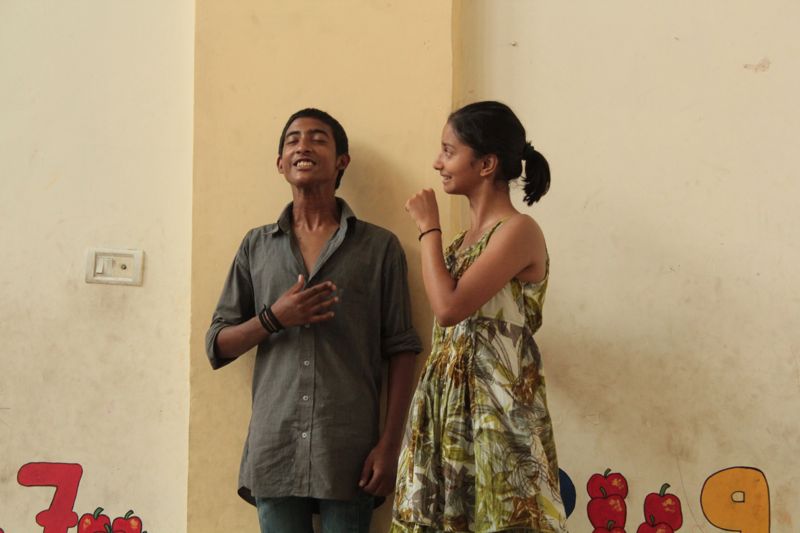
Summer Theatre Workshops
October 17, 2017Khursheed ran away from a broken family when he was 7. After reaching Delhi he lived a life on the streets before being rescued by the Salaam Balak Trust. With Salaam Balak he gets a roof to live and an opportunity to complete his education. He develops an avid interest in theatre and gets associated with our Theatre for Change Program at the age of 13. Since then, he’s gone places. Working currently with the Salaam City-walk Project, he works as a tour guide, taking tourists on a never-before seen side of Old Delhi. He also works with street children using the arts. Khursheed has partnered with us as an actor in street plays and two International Theatre Festivals, The Tin Forest Theatre Festival in 2014 and most recently, the Home/Away Festival in 2016.
The Yuva Ekta Summer Theatre workshops were started a decade ago with a need to inspire students to engage with social issues beyond their textbooks. Working with a host school, we invite senior school students from private schools and NGOs in Delhi to participate in a month long Expressive Arts Program.
Each year, we work with a theme that has captured the imagination of the citizenry. Over the last 10 years, we’ve worked with issues like HIV/Aids Awareness, Child Rights, Women’s Rights, Malnutrition, Community Responsibility etc. The workshops become active participation forums, bringing together a wholesome social experience for the participants. Art workshops with Master Practitioners, periodic field trips and community interventions inculcate values of pro-active citizenship.
15-20 sessions are culminated into an interactive theatre performance inspired from Augusto Boal’s principles of ‘Theatre of the Oppressed’. This performance is then taken to public venues and schools in Delhi, where the Yuva Ekta participants conduct open ended discussions with the audience. Performances are designed in such a way that they evoke responses for everyone, including the participants to answer.
In a month-and-a-half, the group is empowered to represent the organisation and the cause they’ve been diligently working towards. The issue/topic/cause becomes a unifying factor that is able to dissolve boundaries like class, region and gender, justifying the group’s idiom: “Yuva Ekta, Youth Unite”, said as a chorus at the closure of all performances.
Our workshop model from this project is applied to most of our current working programs, allowing us to bring together a diversity of experiences onto a single platform. Bluebells School, Modern School (Barkhamba Road) and Salaam Balak Trust (Tis Hazari) have been gracious hosts for these workshops over the years. Other Schools from Delhi including Gyan Bharti School, St. Mary’s School and Vasant Valley School have had active participation as well.
Through these workshops, we’ve created a network base of active volunteers who continue to give their time and energy to the Foundation.
-
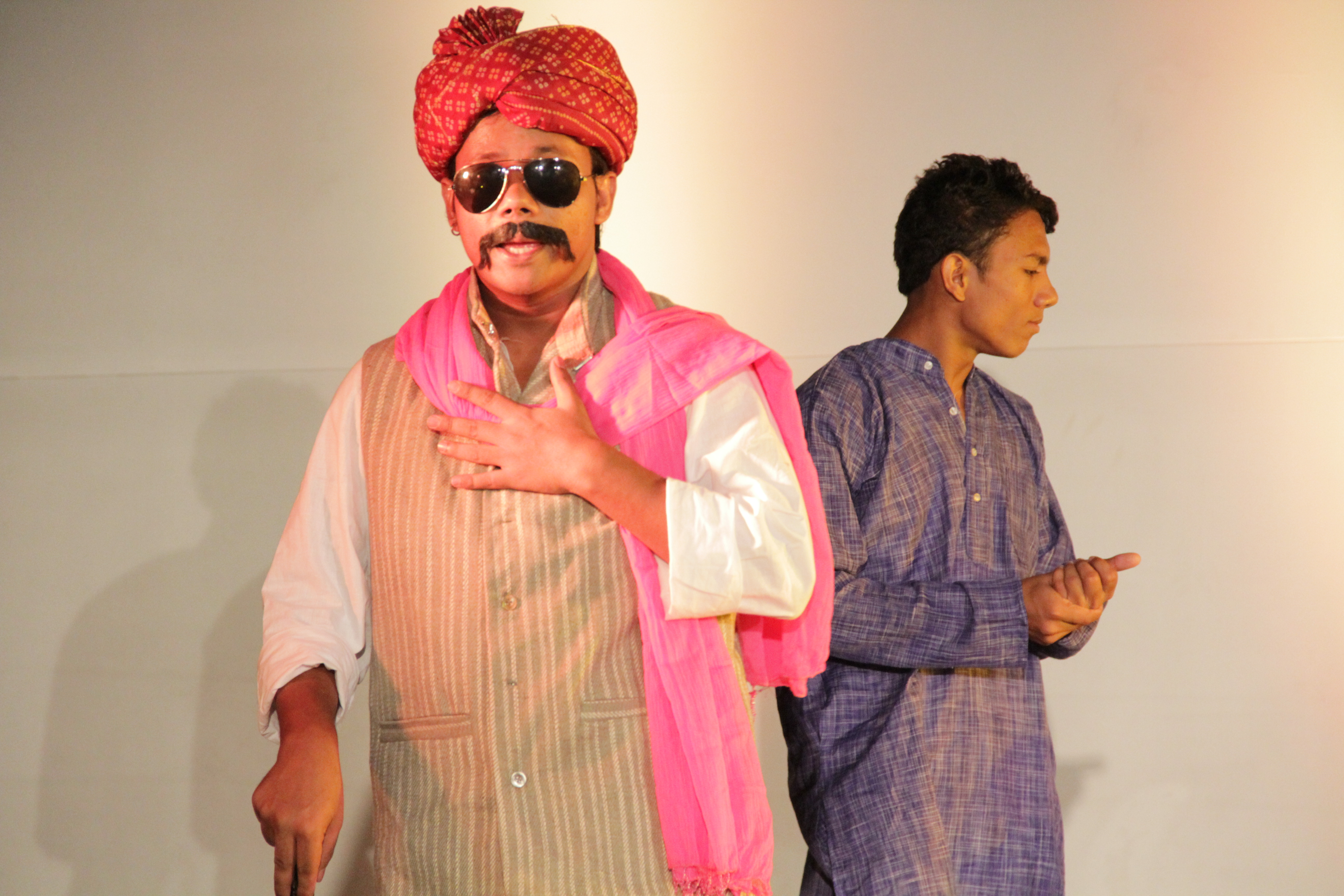
Tin Forest International Theatre Festival
Pankaj is an established actor, director and choreographer who’s bagged roles in Bollywood films like ‘Oye Lucky, Lucky Oye!’ and ‘Bhaag Milkha Bhag’, ‘Road to Ladakh’ and ‘Murari, The Mad Gentleman’ among others. He has a longstanding job as an actor in Kingdom of Dreams’s production, ‘Jhumroo’. He ran away from his village Firozpur (Uttar Pradesh) as a young boy and came to Delhi to start life anew. His years at the Salaam Baalak home take him through school and college, as his interest in Theatre grows. Today Pankaj teaches theater in different schools, has performed in dance shows in India and abroad as a member of the Astad Deboo Dance Company. He was one of the actor’s in the group that represented India at the Tin Forrest International Theatre Festival organised by National Theatre of Scotland in 2014.
Pankaj first became a part of Yuva Ekta through the Summer Theatre Program. Starting off as a participant to becoming a facilitator, his association with the organisation has grown stronger over the years. He shares his experience saying, “I got chance to meet many friends from across the world. I also participated in different workshops with them and learnt new things about performing arts. We were representing India at an International Youth Theatre Festival in Glasgow and it was a great feeling.”
The Tin Forrest International Theatre Festival was organised by the National Theatre of Scotland as a part of the Glasgow Cultural Festival during the Commonwealth Games in 2014. It got together youth theatre groups and performers from the Commonwealth Countries for a one-of-a-kind celebration of the arts.
This was our first attempt at preparing an international production and getting on board a cast and crew that could travel abroad.
Our play, “Shoonya se Shikhar – a Journey of Transformation” brought together stories that criss-crossed length and breadth of India, weaving a tapestry of progress, hope and empowerment. The story talked about the challenge of Democracy and Diversity, of expanding the scope of development to go beyond mere economic definitions, to include social empowerment of the marginalized… stories of the soil, of struggle, transition, change and growth.
The process of planning and strategizing for the Tin Forest Project began in December, 2013. Open auditions were conducted through which cast of 12 performers was selected. The group was representative of India’s social reality, as young people from different socio-economic backgrounds, harbouring different aspirations, came together on one platform. Through a series of workshops and brainstorming, we zeroed down on the concept of the play that we wanted to showcase – representing the diversity of India, and questioning the change and development happening in our country through the lens of our nation’s Youth.
The play premiered at the ICCR auditorium on 8th July, 2014. Our audience included Mr. Satish Mehta, Director General, ICCR, Mr. Vivek Mansukhani, Director Arts, British Council India, Ms. Sarbani Chakravarty, Confederation of Indian Industry, children from Salaam Baalak Trust and students from different schools and colleges across Delhi.
Glasgow was a great experience for the entire team. For most of the members, it was their first trip abroad. Islam from Salaam Baalak shared his experience with the audience at Tin Forest as well, saying that he never thought he will get a chance to travel abroad, and this trip was like a dream come true for him.
We performed on 25th July, the second day of the festival. Since our plot had a lot of scenarios, transitions, characters and costume changes, all we hoped for was that the audience would understand and connect with the story. After the performance, audience members met the caste and crew backstage. Many told us that the subtitles weren’t necessary as our story and portrayal aptly represented our intent. Others were becoming aware about the sub-continent’s problems for the first time. The response we received was amazing, and it was heartening to see audience come up to us share their feedback and love.
Most of the feedback we got was that it was very brave of us to talk about issues that we feel strongly about.
“I think your performance was great – I liked how you incorporated personal stories into it. The ending was quite a strong one. I don’t think the subtitles were necessary when the characters were speaking English but they didn’t bother me at all. I think the ‘from nowhere to somewhere’ was very clear so I think you did a great job.”
– Andrea, Teatru Manoel, Malta (Festival Participant)
Click here to know more about the Festival!
https://stv.tv/news/scotland/283429-scotland-tonight-tin-forest-introduces-games-cultural-programme/
http://www.thetinforest.com/in-pictures-international-theatre-festival-performances-friday-25-july/
-
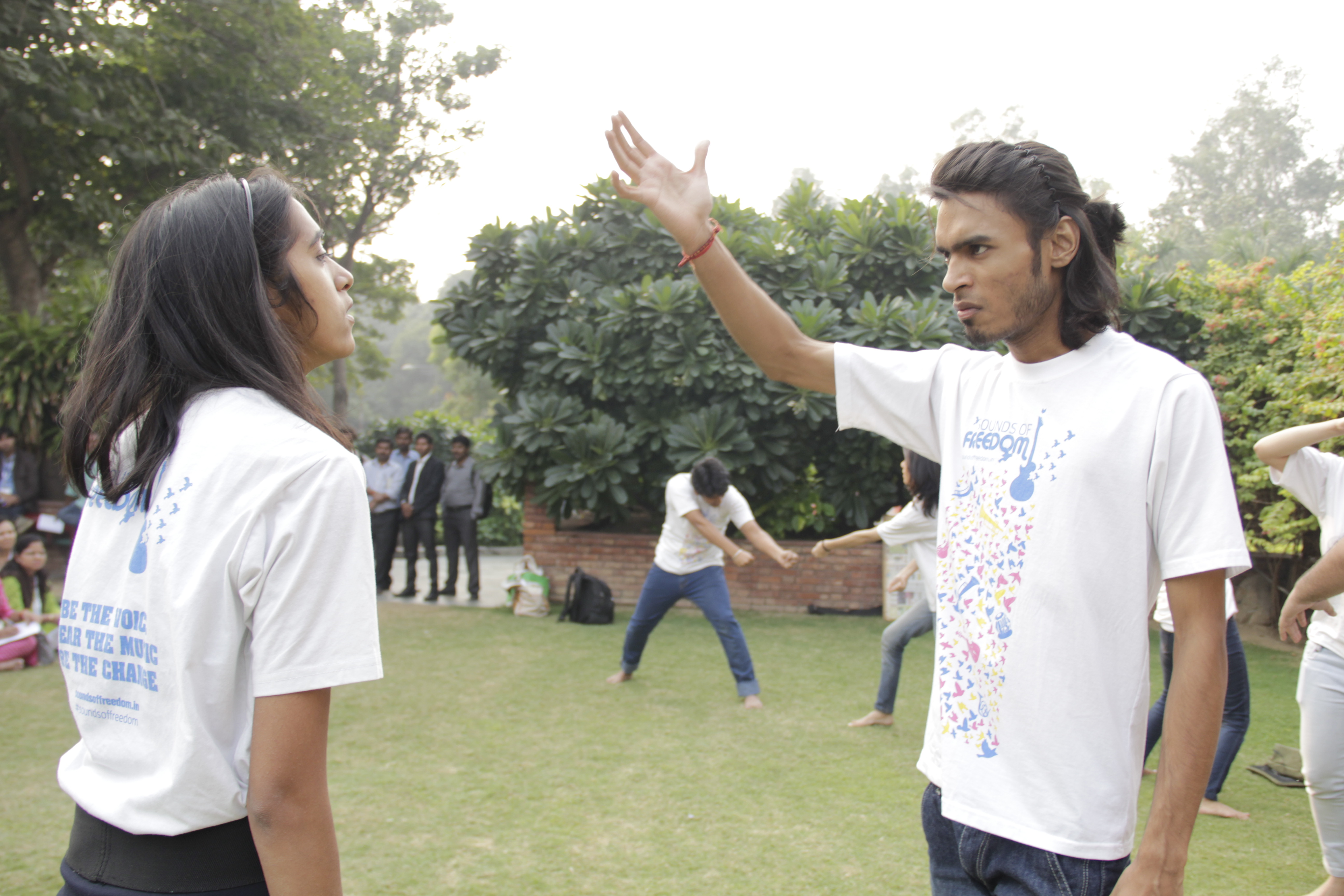
Sounds Of Freedom- Youth Outreach
“It was great to be a part of ‘Naatya Raasta’ and performing in the Sounds of Freedom Festival. It has always been enlightening working under the direction of Mrs. Puneeta Roy. I think we as artists should come up with more programs like this. All the workshops, interactive sessions, performances took us a step closer to reality of Gender Issues. It was my very first theatre project and all the techniques and exercises were new to me. It helped me express myself better as a performer. I found a new direction, and different perspective for art.”
Amber Sahni worked with the Foundation for the first time as a part of the Sounds of Freedom Youth Outreach Program- 2015. A passionate dancer, Amber wants to dedicate his life to this art form. His hard work and commitment has helped him grow as an actor as well. In 2016, he played the character of ‘Munna’ in our play ‘Bargad Ki Chhaon Mein’ which traveled to Glasgow for the Home/Away International Theatre Festival. His journey has been quite an incredible one.
Conceptualized and produced by Teamwork Arts Pvt Ltd, Sounds of Freedom Festival provided a platform for Indian and International musicians, human rights activists and thousands of people to join hands in their efforts to raise consciousness and encourage Freedom of Expression, dialogue and discussion towards inclusive social change.
The Yuva Ekta Foundation was the outreach partner for the concert in 2014 and 2015. We conducted workshops across schools and colleges in Delhi/NCR that engaged the students through art workshops, performances, competitions and exciting interactions.
In 2014, as a part of College Outreach, students from various colleges across Delhi participated in theatre and music workshops held at Sri Venkateswara College, Delhi University. These workshops centered around Arts as a means of advocacy and spreading awareness on ‘Human Rights’. We invited college societies to work together on theme based performances with facilitators such as Taru Dalmia a.k.a Delhi Sultanate, Chayan Adhikari and Ujwal Nagar from Delhi fusion band Advaita, Pramada Menon (a dynamic gender activist and performer), Gilles Chuyen (choreographer and theatre performer). Our facilitators worked with students from different colleges to come up with original songs and nukkad naataks based on ‘Human Rights’. These nukakd naataks were then performed across the city to raise awareness about these theme as well as the concert. The music groups composed songs based on the theme, which were recorded and compiled into an online downloadable album: The Sounds of Freedom- a Beginning.
For the School Outreach, we selected five schools where the YUVA EKTA theater group performed a street play that focused on Gender Justice titled- “Garv Hai – Main Aurat Hoon”, kick-starting a conversation with senior school students on this theme. This was followed by an interaction with Taru Dalmia aka Delhi Sultanate – a rap, hip-hop and reggae artist as well as a Performance Poet, in which he shared his work with revolutionary singers across the country – from the fiery Dalit Singer, Bant Singh in Punjab, to Bhagwan Majhi, an Adivasi leader from Odisha. Inspired by Taru’s empathy and cutting edge lyrics, the students were invited to participate in 4 different workshops – expressing themselves through music, drama, creative writing, or art. The results were compiled into an online exhibition on the website.
Everything culminated at the concert venue, through the Expression Zone, which was a partnership between The Yuva Ekta Foundation and eight other NGO’s from Delhi. Each NGO had a stall with activities and information regarding social issued that they work on.
In the 2nd edition of the Sounds of Freedom Festival- 2015, the participation increased manifold. For that year we chose ‘Gender Justice’ as our theme.
Sounds of Freedom Youth Outreach Workshop was conducted at India Habitat Center on 31st August, 2014. A total of 175 youth attended the workshop. After the Outreach Workshops, auditions were conducted to select a choir-Vocal Raasta and a street theater group- Naatya Raasta.
Naatya Raasta worked with 20 actors for 6 months and created a street play called ‘Gender Bender- A step towards Gender Justice’- a play that questioned gender based stereotypes, patriarchal mindsets and social conditioning. Naatya Raasta did 11 performances in institutions and public venues across Delhi/ NCR.
Vocal Rasta trained 15 musicians in songs of Freedom and collectively re-arranged popular freedom songs: “Ederlezy” by Goran Bregovic, “Earth” by Imogen Heap, “Abantwana Basethempeleni (Children of the Temple)” and “Hum Dekho Chal Pade” – The SOF Anthem, composed by Kailash Kher. Also, the choir created original compositions “Freedom”, “Love”, “Respect”, “Chain”, “right left”.Vocal Raasta did 13 performances in institutions and public venues across Delhi/ NCR.
We have continued our association with the participants from both these festivals. Most of the participants from the group partner with us as guest facilitators and actors in several productions, projects and workshops on regular basis.




